Have you finally made your decision to move to Dubai? If yes, then a great lifestyle awaits you. It’s no surprise that this iconic city is where many expats are flocking.
Dubai promises broader career horizons, high salaries, and a luxurious lifestyle. Also, it has become a prime destination for investment.
If you’re seriously considering moving here, then you’ve come to the right place. This guide covers everything you need to know about moving to Dubai, from finding a job and a place to live to cultural differences and setting up your new life here. So, without further ado, let’s dive right in!
- What to expect when moving to Dubai
- How to move to Dubai
- Cost of living in Dubai
- Working in Dubai
- Visas & residency procedures
- Finding a place to live
- Setting up in Dubai
- Entertainment in Dubai
- FAQs
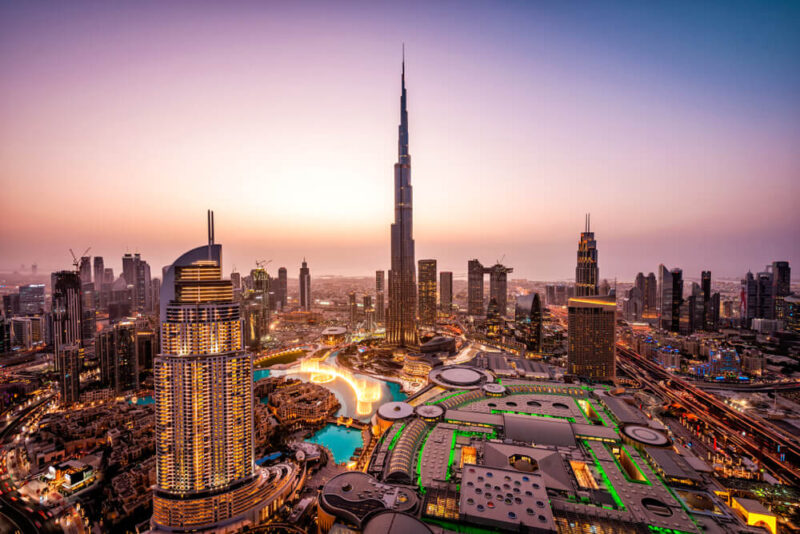
1. What to Expect When Moving to Dubai
Is Dubai a Good Place to Move to?
Dubai is often seen as an attractive destination for expats due to its vibrant lifestyle, diverse community, and professional opportunities.
While it offers various benefits that appeal to a wide range of people, the suitability of Dubai as a home base differs depending on personal preferences and lifestyle expectations.
Is Moving to Dubai Worth it?
Yes. Migration to Dubai can offer significant financial advantages, such as no income tax and opportunities for higher salaries, which many find appealing. However, it’s important to consider the balance between these benefits and the city’s relatively high cost of living, along with adapting to a different cultural landscape.
Dubai Culture
When moving to another city, it’s always a good idea to be aware of its culture and norms to avoid any inconveniences.
Whether you’re moving to Dubai with your family or on your own, here are some key points you should know about the city:
- Dubai is one of the safest cities in the world, with low crime rates
- Its weather is mostly humid and hot, except during the winter season (from December to March), it’s likely to be good and with a refreshing breeze.
- Any racist or verbal comments are not accepted; in addition, if someone defames another, they could be imprisoned or banned from entering the country.
- Drinking alcohol in the streets is not allowed, just in licensed places.
- For men, it’s better not to initiate handshaking with women unless they do so first.
- Most private companies and businesses usually don’t offer pensions.
For families moving to Dubai from the UK or any other Western country, it’s always important to know about Dubai’s culture; since it’s considered an Arab country, you might find differences compared to Western culture.
Click here for a quick guide on Dubai’s unspoken dress code.
2. How Can I Move to Dubai?
What Should I Know Before Moving to Dubai?
You should know several important things before moving to Dubai, which are included in detail in this guide.
However, here is a summed-up checklist for moving to Dubai with the crucial things you should consider
- The type of residency visa you need
- The needed documents to complete your residency procedures and employment
- The cost of living in Dubai
- The community that fits your needs and budget
The laws of the country, especially the ones related to rentals, working, and driving.
Your Moving to Dubai Checklist:
There is no denying that relocating to Dubai or any other place in the UAE is a major undertaking. To keep things organised and smooth, consider the following checklist:
- Passport Validity: Your passport should be valid for at least six months after leaving the UAE.
- Work Permits and Visas: Obtain appropriate work permits and visas beforehand. This may span weeks or months.
- Vaccinations and Health Checks: Ensure you have all the required health checkups and vaccinations before arriving in the UAE.
- Budgeting: Consider your moving cost, including shipping, flight, and first accommodation. Additionally, remember that you have also to include the expense of building a new house.
- Savings: Savings to cover first-time expenses like rental deposit and leased car charges, which may not be reimbursed by an employer immediately, are good ideas.
- Tax Planning: Know your home country’s tax obligations once you relocate. It is essential to notify your country’s tax institution about your movement.
- Schools: If you have kids, take some time to investigate schools around your new location. Given that the wait for international schools is very long, the process should begin now.
- Banking: Set up a bank account. This process could begin in your home or within weeks of arrival.
- Accommodation: Determine whether you will rent or purchase a residence. Walk in the neighbourhoods and learn about rental properties and their pricing policies.
- Healthcare: Also, make sure you get health insurance, which is valid in the UAE; it is compulsory.
- Driving License: Check whether your existing driving license is valid in the UAE or if you have to obtain a local license.
- Cultural Research: Acquaint yourself with the customs, culture, and laws of the local population in order to facilitate a smooth changeover.
3. Cost of Living in Dubai
When it comes to the costs of living in UAE, especially Dubai, people usually find it an expensive city, particularly for those with minimum wages.
Accordingly, it’s good to have an overview of the average costs of the basic requirements and services in the city; this will help you estimate and plan your spending upon arriving.
First, housing expenses will cost you 15% to 30 % of your monthly salary, while food and transportation will cost around 15% for each.

How Much Money Do I Need to Move to Dubai?
To make a smooth transition to Dubai, it’s advisable to have a monthly income ranging from AED 18,000-30,000. This salary bracket allows you to rent a comfortable apartment in a good neighborhood, manage your utility bills, and cover daily living expenses without financial stress.
Additionally, having this level of income enables you to purchase extra health insurance, providing you with added security and peace of mind. By ensuring your salary falls within this range, you’ll be well-equipped to enjoy a comfortable and stable lifestyle in Dubai.
For a detailed view of the cost of living in Dubai, check out this article.
All in all, you first need to plan for the following basic services:
- Rental fee
- Water and electricity
- Home Internet
Furthermore, here are the average costs of some basic expenses in Dubai:
- Bus monthly subscription: AED 340
- Taxi ride: AED 12
- Fuel: AED 3.84/litre
- Food: from AED 4 to AED 40 per kg
- Water and Electricity (DEWA): AED 700/month
- Home Internet: AED 360/month
Moreover, the water and electricity system in Dubai is called DEWA; it stands for Dubai Electricity and Water Authority. It has an online portal through which you should register to have an account.
Consequently, you will be able to manage your bills and payments online.
How Much Is the Rent in Dubai per Month?
The starting range of apartment rental prices in Dubai per month is about AED 4,500. However, it might vary depending on factors like
- Type of unit
- Location
- Size of unit
- The amenities
- The furnishing status.
Besides, you can negotiate the total rental fee as it’s not usually the final price.
What salary do I need to live in Dubai?
To live comfortably in Dubai, a family of four might expect to spend around USD $4,546 monthly. This includes average rental costs of about USD $1,193 per month.
Also, note that the average yearly salary in Dubai is around USD $53,148, which gives a perspective on the average cost of living in Dubai.
4. Working in Dubai
The working routine and system differ from one country to another; as a new expat in Dubai, you’ll need to know about the working procedures in this emirate.
All the details you need to start seeking new opportunities in Dubai will be covered below.
Is Moving to Dubai a Good Career Move?
Yes, surely moving to Dubai is a good career move; the city is home to the top international companies. It is also popular for its promising working environment and market, as many expats move to Dubai to seek new opportunities.
You can have a look at this article for details about the professions in UAE on Property Finder.
How to Get a Job in Dubai
There are two main ways of getting a job in the UAE. The first option you have is to apply directly to the company you’re interested in working for.
Another option many have used to get a job in Dubai is to lean on your professional network. If you have a professional acquaintance who works for a company you would like to work for, you can reach out and express your interest, and then your acquaintance can make a referral to their HR department on your behalf.
While not as common, it can be a very effective strategy for getting a job in Dubai, as you will already have someone within the company vouching for you.
To kick off your job search in Dubai, check out the following resources to find a job that fits your career aspirations:
Getting Your Papers Ready
To work in Dubai, you’ll need to have a couple of important legal documents. These are your work permit and your residency visa. We will walk you through the basic procedures for each below.
Work Permit
Having a work permit is essential to start working in Dubai and the first step to completing your employment procedures. Issuing it is the employer’s responsibility, although it might ask you to prepare some documents to proceed in the process.
Here are the documents the employer will ask for:
- Coloured picture with a white backdrop
- A copy of a passport valid for at least 6 months
- The ministry’s formal Employment Offer form, which should be signed by both the employer and the employee
- The academic documentation required is based on the profession’s skill level
- Workers who earn less than AED 4000/month or who don’t have a degree aren’t considered skilled
- A professional license issued by the competent UAE authority
- Nationals from Pakistan, Afghanistan, Iraq, and Iran must provide a readable and clear photocopy of both sides of their current national ID issued by their home nations.
Residence Visa for Working in UAE
The residency visa for employment is one of the types of residency visas in UAE, which is issued by the employer or sponsor to have a permanent residency visa.
The validity of a residency visa is from 1 to 3 years, depending on the employment contract and your job.
- You should check the status of your visa through the website of the General Directorate of Residency and Foreigners Affairs (GDRFA) using your valid passport.
- Once your residency visa for work is issued, you will be able to get an Emirates ID.
These procedures are the same to start working whether you’re moving to Dubai from the UK, India, or any other location.

Working Regulations in Dubai
The Working Hours
Recently, the UAE government changed the official working hours and days in order, as this will ease things for all employees considering Dubai’s international working environment.
Consequently, the working days and weekends are divided as follows:
- Working days: Monday – Friday
- Weekend: Saturday – Sunday
This is in addition to the official holidays and events that the country grants to employers.
Salaries in Dubai
According to the official websites that depend on the performance rates and the size of the business sector, the average monthly salary in Dubai is
- From AED 19,000 to AED 21,500.
This range might increase or decrease depending on many factors like the field, job position, or entity size. Note that while there is not a legal minimum wage in Dubai, many insights and trusted sources indicate that the lowest salary range is AED 5,000 for employers across Dubai’s various sectors.
5. Visas
To enter Dubai, you will need a visa. The type of visa that you are eligible for will depend on why you are moving to the UAE and for how long you wish to stay. For example, here are some of the most common types of visas:
- Employment Visa: This is a visa given to expats employed by companies wihin the UAE, which allows you to live and work legally in the UAE.
- Company Investor visa: This visa is given to foreigners who are looking to start a business in the UAE or already own a company in the UAE.
- UAE Family Visa: This visa allows an expat with a residency visa in the UAE to sponsor their immediate family and join them in the UAE.
Check out this guide to find out which visa you should apply for → Click here.
Getting Your Entry Permit
After your visa is issued, you can get your entry permit. The Dubai entry permit is an electronic document that allows you to enter the UAE to finalise your residency visa procedures. The entry permit is valid for:
- 2 months for typical visa types or Green residence visa (whose duration is 1 to 5 years)
- 6 months with multiple entries for Golden Visa holders
The entry permit is the responsibility of your sponsor, which could be your employer, relative, public or private sector, and more. They are responsible for issuing it for you.
Getting a Residency Visa and Emirates ID
After entering the UAE using your entry permit, you will need to apply for your residency visa. Getting a residency visa in Dubai is a pretty direct and straightforward process.
Read this guide to learn how to get your residency visa in Dubai → Click here.
After completing your residency visa, the next step is to get your Emirates ID. Your Emirates ID is probably the most important document you need in the UAE, and you should generally have it on you at all times. This is the main identification document used by all residents, and you will need it to access most services within the city.
Check out this guide for getting your Emirates ID
Can I Move to Dubai Without a Job?
Yes, you can move to Dubai without a job; this is because the UAE has recently offered new types of visas.
Check out this guide for moving to Dubai without a job → click here.
6. Finding Your New Home in Dubai
In Dubai, most expats choose to rent, yet if you’d prefer to buy, there are many properties for sale in case you’re seeking a permanent stay or want to invest in real estate in Dubai.
While you might think finding a home in Dubai is a hard process, this is not the case with Property Finder, as we provide you with a comfortable and smooth home-finding process.
Explore Apartments for Rent in Dubai
-
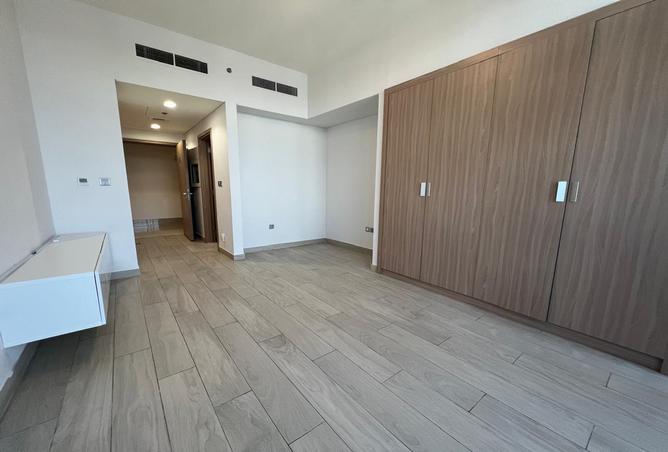
Apartment
Listed 1 week ago
60,000 AED/year
Ready To Move II Chiller Free II Studio For Rent
AZIZI Riviera, Meydan One, Meydan, Dubai
studio
1
366 sqft
-

Apartment
Listed 3 weeks ago
95,000 AED/year
Upcoming 1Bed | Chiller Free | Appliances Incl.
Burj Al Salam, Sheikh Zayed Road, Dubai
1
2
774 sqft
-
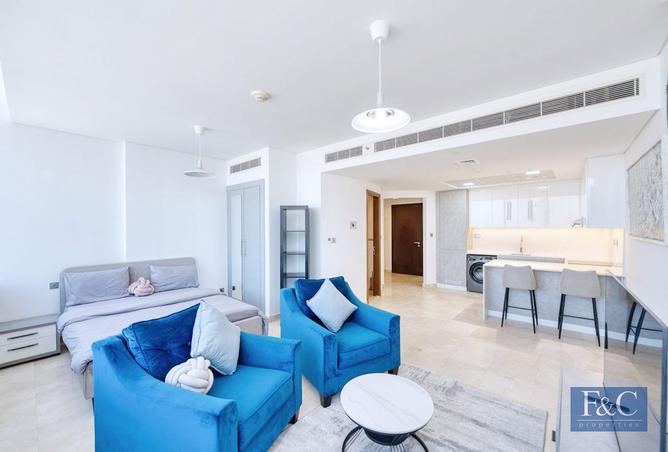
Apartment
Listed 3 weeks ago
105,000 AED/year
FURNISHED | STUDIO | STUNNING DIFC VIEW
Sky Gardens, DIFC, Dubai
studio
1
543 sqft
-
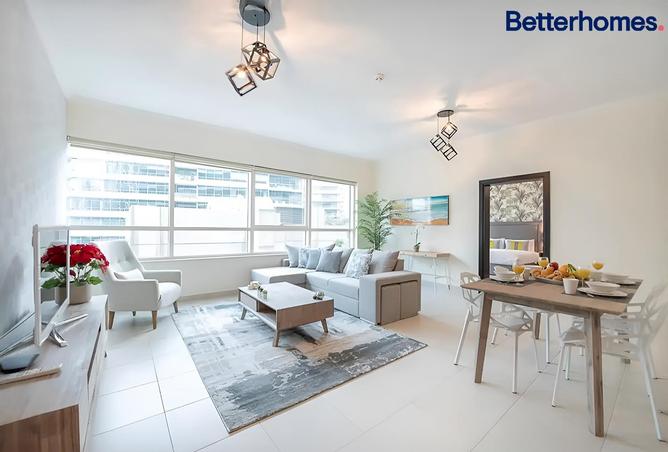
Apartment
Listed 14 hours ago
125,000 AED/year
Chiller free | Marina View | Emaar
Marina Quays North, Marina Quays, Dubai Marina, Dubai
1
2
878 sqft
-

Apartment
Listed 1 day ago
225,000 AED/year
Chiller Free | Upgraded | Full Sea View
5242 Tower 2, 5242, Dubai Marina, Dubai
2
2
1,131 sqft
-
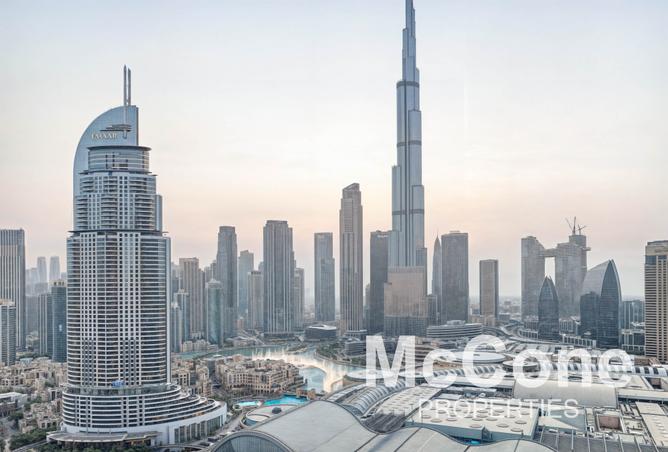
Apartment
Listed 4 days ago
220,000 AED/year
All Inclusive Bills | High Floor | Best Deal
The Address Residence Fountain Views 1, The Address Residence Fountain Views, Downtown Dubai, Dubai
1
2
840 sqft
-

Apartment
Listed 7 days ago
190,000 AED/year
Brand New | High-End Furnishing | Biggest Layout
Palace Beach Residence, EMAAR Beachfront, Dubai Harbour, Dubai
1
1
851 sqft
-

Apartment
Listed 1 day ago
180,000 AED/year
Brand New | Spacious 2 bed | Corner unit
Kensington Waters A, Kensington Waters, Mohammed Bin Rashid City, Dubai
2
2
1,235 sqft
-
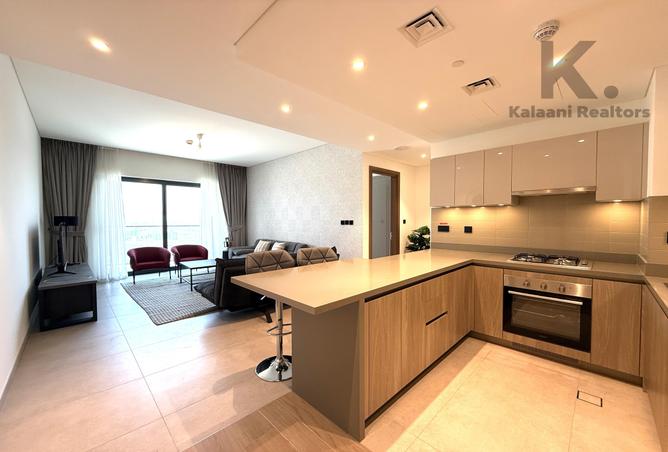
Apartment
Listed 2 days ago
130,000 AED/year
Luxury Living | Plus Study | 12 Cheques
Waves Grande, Sobha Hartland, Mohammed Bin Rashid City, Dubai
1
2
911 sqft
-
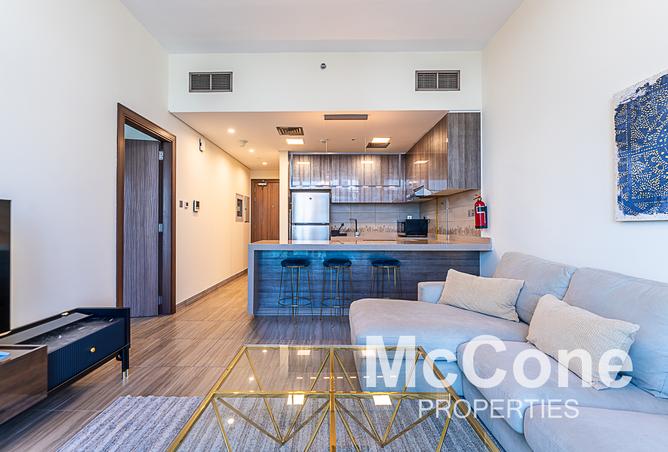
Apartment
Listed 5 days ago
120,000 AED/year
Fully Furnished | Close to Metro | Bright
MBL Residence, JLT Cluster K, Jumeirah Lake Towers, Dubai
1
2
752 sqft
Through our website, you will find endless units for rent and sale across the different communities of Dubai.
Generally, we recommend that you rent initially, as this gives you more flexibility regarding your home’s location, the unit type, and the residential period, especially if you’re new to the city.
In addition, you can easily relocate in case your work location changes or move to a bigger unit if your family joins you.

Tips for Expats When Renting a Home in Dubai
Renting a home in a new city for the first time might feel risky, yet exciting. To ensure you have the best renting experience, you should plan well and consider the following tips for a flawless move.
- Assign a maximum budget limit for rental to stick to it while searching and finalising a deal.
- Know your leasing rights and responsibilities in addition to the notice periods
- Know more about the additional fees and taxes for renting
- In case you’re searching for a furnished unit, then put a list of the important items that you need in a property
- Make sure of the due maintenance fees for the building and check if it’s pet-friendly, in case you have one
- Discover more about the community that you find suitable, including its facilities and services
- Get advice from one of the real estate experts to find the best options in no time
- Ask your friends or relatives who went through such a process to give you some recommendations or tips
- Use DataGuru’s Community Insights to know more about the community you’re interested in.
- Make sure to negotiate if more than one person is seeking the unit you want. That’s why it’s better to ask for help from real estate experts to easily bring what you need without any hassle.
Types of Rental in Dubai
In Dubai, you’ll have the choice between two types of rentals:
- Long-term rental
- Short-term rental.
The difference between long-term and short-term rental is mainly the leasing period; a short-term rental in Dubai allows you to lease a unit on a weekly or monthly basis without the commitment to a long-term contract.
On the other hand, a long-term rental is a more permanent option as you will have a leasing contract for at least 1 year.
Once you reach the city, the short-term option might be better until you settle down and decide which community fits you best. It’s also less expensive than staying in a hotel.
Which Part of Dubai Is the Cheapest?
There are many affordable areas to live in Dubai which are supported with all the services and facilities you might need. Find below the top cheapest districts in Dubai.
- Deira
- Dubai Production City
- International City
- Jumeirah Village Circle (JVC)
- Dubai South
Which Is the Best Area in Dubai to Live in as Expat?
There are different top areas in Dubai for you as an expat, like:
- Dubai Marina
- Deira
- Mirdif
- Al Barsha.
However, when choosing your living area, you should consider its price range, amenities and services, accessibility to other areas of the city, and potentially your commute to work. These are the points you should consider to make a well-rounded decision.
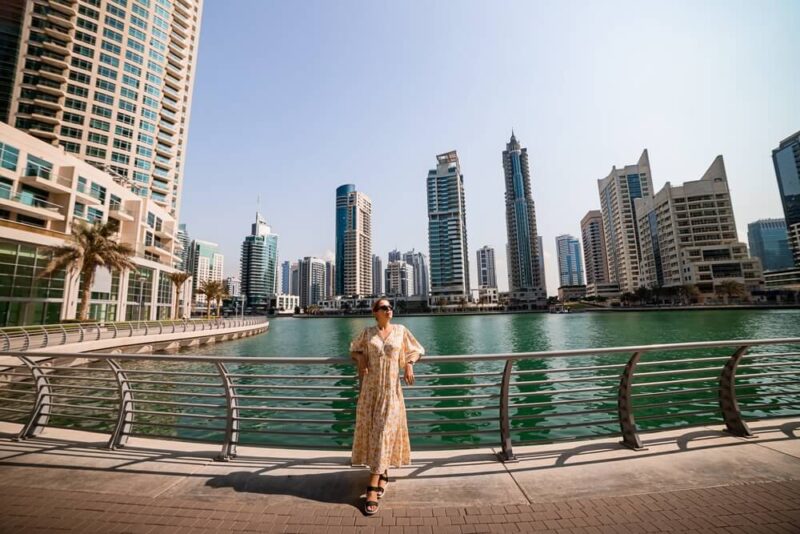
Top Residential Areas for Rent in Dubai
Choosing the right community is just as important as finding a property you like. Firstly, you should search for a community that suits your budget, needs, and lifestyle preferences.
The below areas include the best towers and buildings, which boast various facilities and are known for their vibrant atmosphere:
- Dubai Marina
- Downtown Dubai
- Business Bay
- Jumeirah Lake Towers (JLT)
- City Walk.
For families, those are the top family-friendly communities in Dubai where you can enjoy a calm lifestyle:
- Palm Jumeirah
- Mirdif
- Jumeirah Beach Residences (JBR)
- Mudon
- Arabian Ranches
You can have a look at the different properties for rent in Dubai on Property Finder.

Top Residential Areas for Sale in Dubai
Buying a house in Dubai depends on different factors like the unit’s value, whether it’s a good deal for investment, location, and amenities.
Additionally, the UAE allows expats and visitors to own units with full ownership in specified communities which are known as ‘Freehold areas’; this list is updated yearly by the Dubai Land Department (DLD).
Here are some of the top freehold communities:
- Palm Jumeirah
- Burj Khalifa
- Dubai Investment Park
- Jumeirah Beach Residence (JBR)
- Dubai Sports City
- Motor City
- Jebel Ali
- The Greens.
Are you thinking of owning a unit in this emirate? If yes, here are various properties for sale in Dubai on our portal.
If you decide to own a unit in Dubai, you may choose to take out a home loan to finance the purchase, which is valid for primary and secondary properties. In that case, contact our professional team in Mortgage Finder, who are here to help you find the best deal.
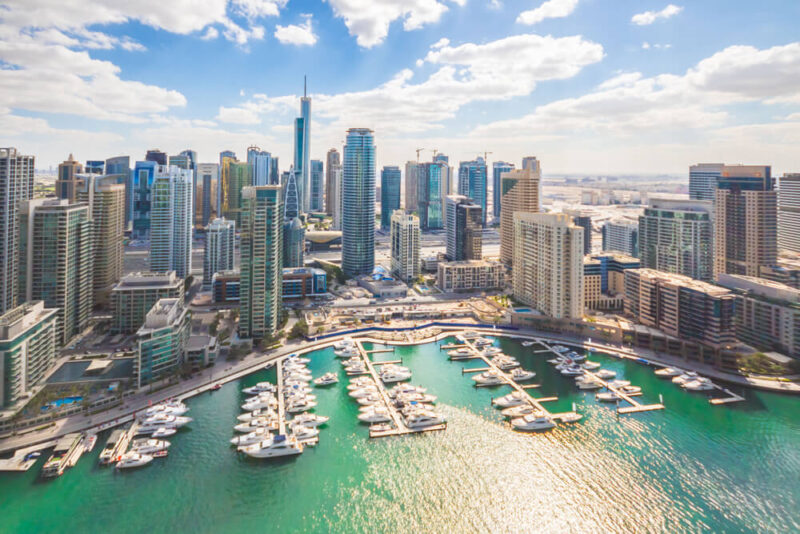
7. Your First Week in Dubai
From getting a new phone sim to setting up your bank account, below we’ll walk you through the basics you’ll need to know as you set up your new life in Dubai.
Checking out From the Airport
While checking out of the airport in Dubai, you will be asked to submit a health certificate, which any Dubai visitor should provide upon arrival.
Getting a New Emirati SIM Card
Getting a local mobile number should be one of the first things you should do, as it will make navigating around the city that much easier.
Inside the airport, there are different outlets for various mobile phone companies like Du, Etisalat, and Virgin Mobile.
Moreover, these companies have many differerent plans, including tailored plans for those coming on a short visit or for tourism, so you can choose a plan that makes sense for your needs.
If you don’t manage to get a SIM card at the airport, you can head to any mall in Dubai, and you’ll easily find other outlets for mobile phone companies.
To get a new SIM card, all you have to provide is
- Your entry visa to Dubai
- A copy of your valid passport.
**Note that you don’t need a visa to apply for a flat/sim card if you pass through automatic passport control.
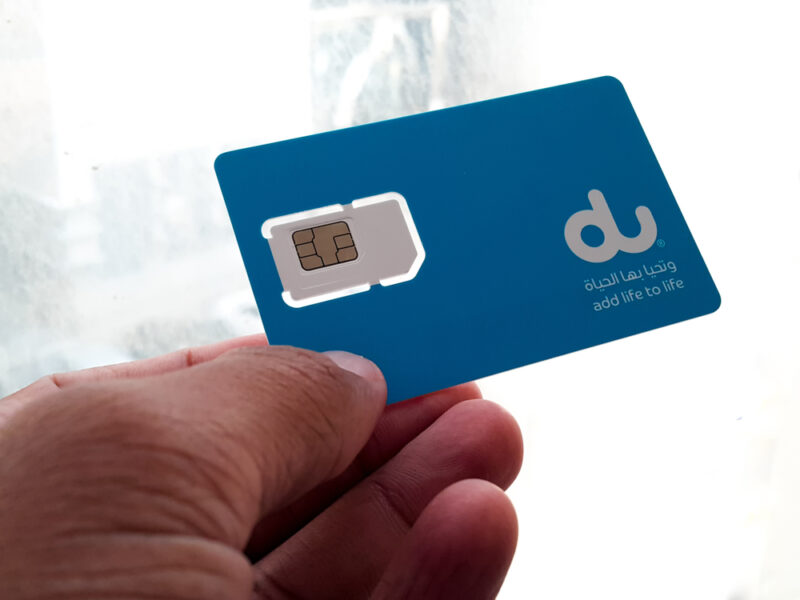
Transportation in Dubai
Commuting in Dubai is not a hassle in any way, as there are various means of transportation. Besides, transportation in the UAE is comfortable and convenient; you will find it across the different locations of Dubai.
Find below the kinds of transportation in Dubai:
- Metro
- Tram
- Buses
- Private caps
- Taxi/Uber.
IMPORTANT TIP: In order to use public transportation in Dubai, you have to get a Nol Smart Card. This is an e-card that allows you to pay for your transport instead of cash or your bank card.
Besides, sometimes you get a discount on the fare when using a Nol Card.
It’s also important to know that public taxis are cheaper than apps, which makes them a more budget-friendly option.
Driving in Dubai
If you plan on using a car while in Dubai, you will need to get a driving license. To get a driving license in Dubai, you should meet the following conditions:
- You must be at least 21 years old
- You will have to pay the service fee, which is about AED 500
- You shouldn’t have any disease that prevents you from driving properly
- You have to pass the exam test offered by the Emirati government
- You should submit the following documents
- A valid residency visa
- A copy of your current rental contract
- An official letter from your employer or sponsor that proves your residency.

Opening a Bank account in Dubai
While you will likely still be able to use your bank card from your home country in the UAE in your first few weeks in the country, we recommend that you open a local bank account.
Opening a bank account will facilitate the following:
- Receiving your salary
- Taking out a loan
- Paying bills online.
Check out this guide on how to open a bank account in UAE.
Healthcare Services
Among the emirates in UAE, Dubai is known for its full healthcare coverage to all expats. To access healthcare in Dubai as an expat, you can buy a healthcare card from your employer, which costs AED 500 for all ages.
Moreover, these cards allow the expats to get a 50% discount on the basic service value.
Education in Dubai
In Dubai, all expats can enroll their children in any educational entity, either a governmental or private one, according to the regulations of education in UAE.
Here are the average annual tuition fees for the different educational stages in Dubai:
- Nurseries: AED 2,500
- Schools:
- Governmental: AED 6,000
- Private/International: from AED 14,000 to AED 22,000
- Universities: AED 37,500 to AED 70,000

Online Services
One of the many perks of living in Dubai is that many services are digitalized and the city is popular for having online portals and apps for almost all services, including governmental ones.
These are the main apps you need to know about for the various services in Dubai:
- Dubai Now: It’s a unified portal for more than 120 governmental and private services. Through it, you can get all the services that cover your daily needs, like paying the bills, renewing your car license, and managing Dewa and Ejari.
- Salik: It’s a traffic system through which you pay the toll fee in an automated way. You can use the app to recharge your Salik account and other important services.
- Dewa: This app is related to all the water and electricity services, including paying the bills and getting the needed documents to prove your residency.
8. Entertainment
Dubai is the ultimate hub for leisure as it’s home to some of the most iconic attractions in the country. You can enjoy visiting different interesting places, theme parks, and most importantly, the top tourist landmarks.
The outstanding places to visit in Dubai are endless, but here are the most popular destinations:
- Burj Khalifa
- Museum of Future
- IMG World of Adventures
- Green Planet
- Dubai Parks and Resorts

Moreover, for those who are nature lovers and enjoy green spaces, the city has something for you! There are different cool parks in Dubai where you can enjoy a walk, have a picnic, or even do yoga!
In case you’re a shopaholic, then the malls in Dubai are sure to satisfy your shopping needs. Here are the best malls in Dubai:
- Dubai Mall
- Mall of the Emirates
- Dubai Festival City
- Dubai Marina Mall.
Frequently asked questions:
- Can You Just Move to Dubai?
You can’t move to Dubai without having a residency visa plan, as there are different types of residency visas; you can surely find an option among them that suits you.
- What Are the Disadvantages of Living in Dubai?
Moving to any new city comes with some difficulties till you adapt and get used to everything around you. In Dubai, some of the challenges that you might face are
- The traffic jam
- The strong competition when it comes to finding the best job opportunities
- The hot weather during most of the year
- The high prices in case you have a minimum wage
- What Are the Pros of Moving to Dubai?
There are many cons to moving to Dubai; these are some of them
- It has a diverse culture, so acceptance and respect are essential there
- It’s a safe country, so you won’t have to worry about walking at night or strolling the streets, especially for women
- All the services are systematic, allowing you to reach them easily
- Dubai has a wide variety of working fields, so whatever your interests, there is a good opportunity for you to develop yourself
- It has a diversity of educational systems
- Dubai is a great place for investment as its economy rapidly grows.
- Should I Move to Dubai as a Woman?
Yes, surely, if you’re a woman who is planning to move to Dubai, you shouldn’t hesitate about it. Thie awesome emirate is among the top safest cities in the world with low crime rates.
- Is the Quality of Life in Dubai Better?
Yes, it is. Dubai is among the greatest hubs for expats seeking better living quality with world-class standards.
Besides, in this emirate, you will find all the services you need and more as it adopts the latest technologies and modern solutions to make your life more comfortable and easier.

Now, you know everything you should do from your arrival to Dubai till settling in your new home through this inclusive guide; moving to Dubai either for work or just living there is a big step but surely worth it.





